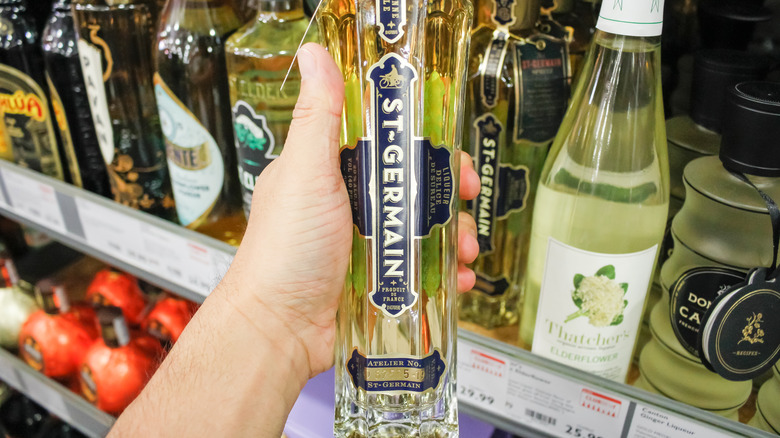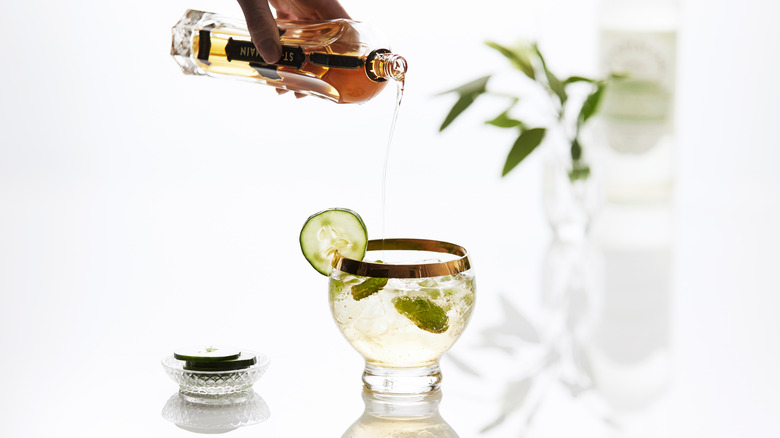Who Invented St-Germain Liqueur?
What has been recognized as "bartender's ketchup" by the New York Times and the community at hand is the 2007 brainchild of the late Robert J. Cooper. At a time when liqueurs were not commonly used, Robert took a risk with the enterprise, so much that he was warned by his skeptic father and Chambord creator Norton "Sky" Cooper, "I'll hire you back in a year when you fail." The entire Cooper family had been making spirits since the early 1900s, and Cooper Spirits Company is now responsible for not just St-Germain but also Lock Stock & Barrel and Hochstadter's Slow & Low. The younger Cooper's chutzpah paid off, as the uniquely flavored ingredient could be easily splashed into cocktails and shaken into drinks and became beloved by bartenders around the world.
Robert named the liqueur after a noteworthy artsy district in Paris known as St‑Germain‑des‑Prés. Offering a sweet floral fruity palate, the product was made from collecting elderflowers and garnered a reputation of its own — even generating publicity when the primary ingredient appeared on Meghan Markle and Prince Harry's wedding cake.
Making a mark in hospitality
To produce one bottle of St-Germain, as many as 1,000 elderflower blossoms are handpicked in the spring. The colorful liqueur doesn't include any added additives but takes its hue from pollen found in the blooms of the picked flowers. Batches are numbered and labeled with an atelier to mark the year the flowers were harvested. The elderflower liqueur is packaged in a bottle that smacks Art Deco, advertising the sweet creativity of the era and community Cooper hoped to capture.
As the story goes, Robert Cooper was out drinking in London in the 2000s when he sampled a drink made with elderflower syrup and was inspired to make a liqueur of his own. At the time Cooper sent his product to market, barkeeps were looking for ingredients that could cause a stir, both literally and figuratively. The floral liqueur was the answer, and Cooper's success with St-Germain inspired him to revive Crème Yvette and Hochstadter's Slow & Low. To this day, Cooper's legacy lives on within the bartending industry.

